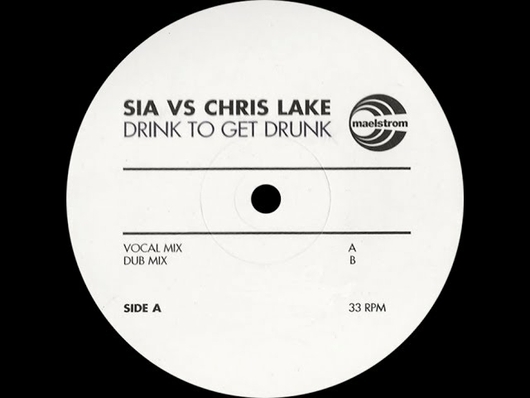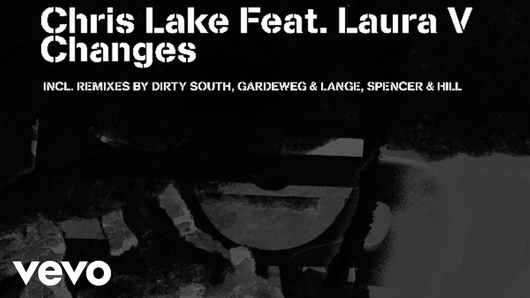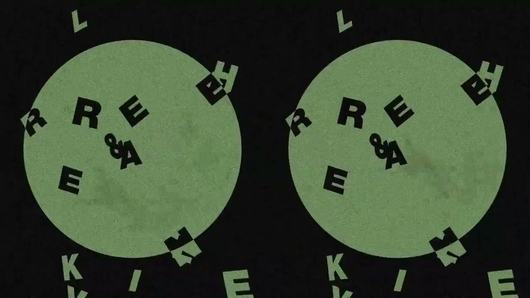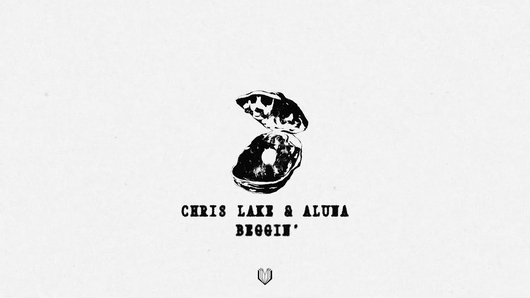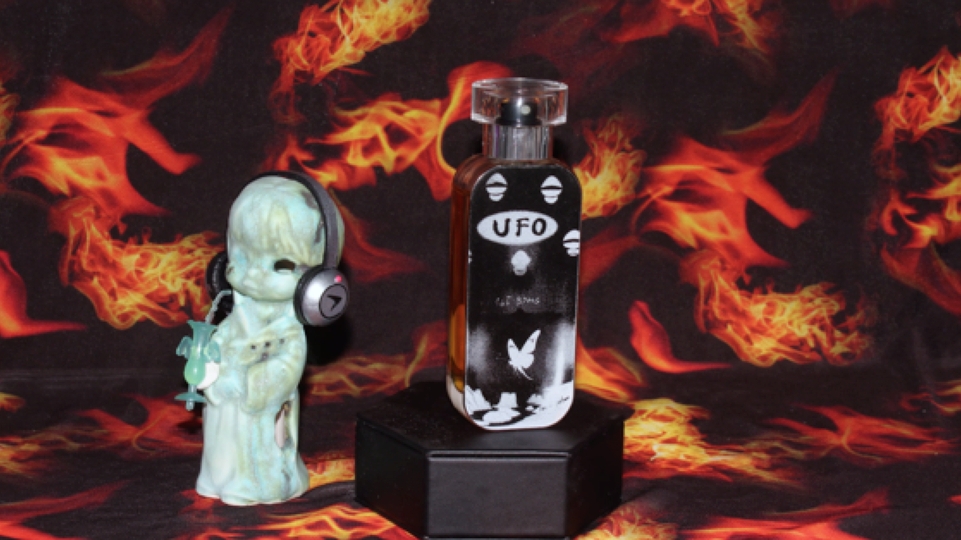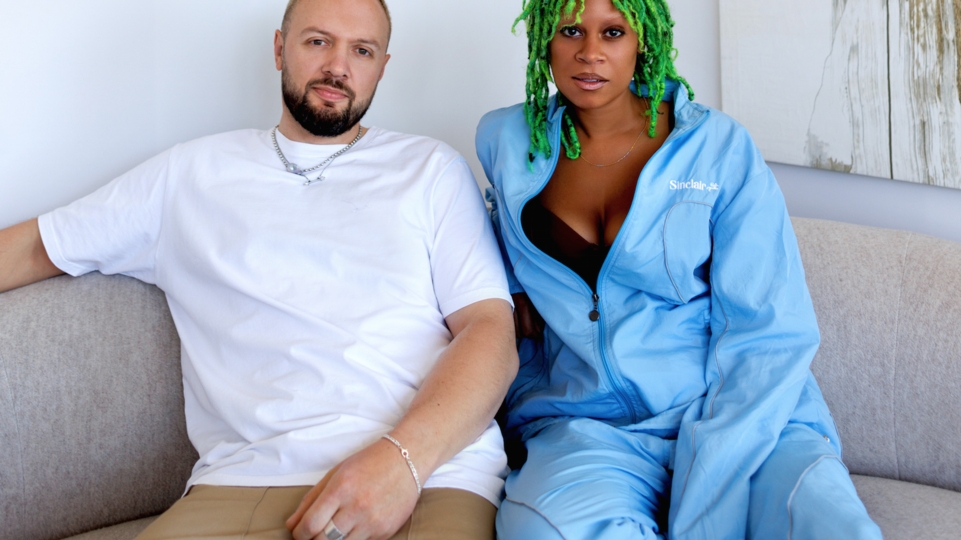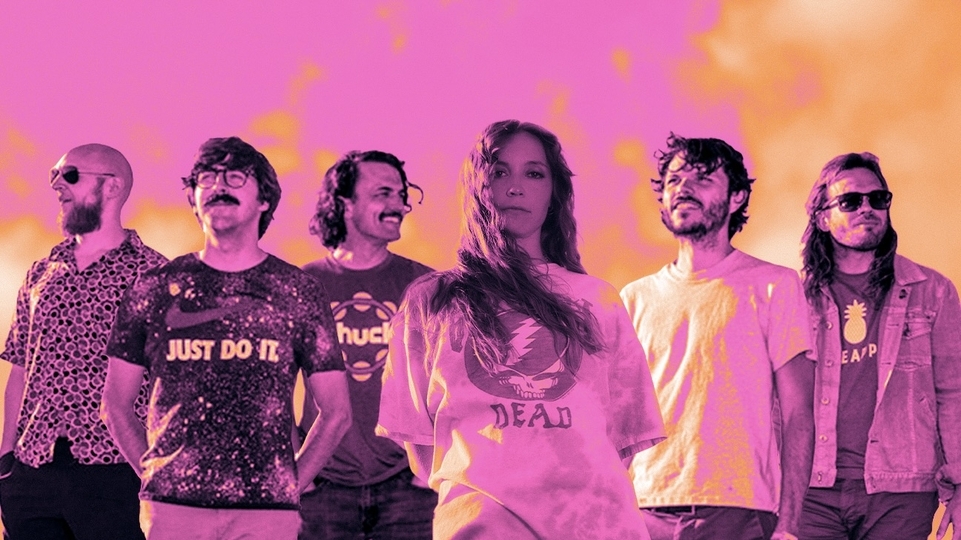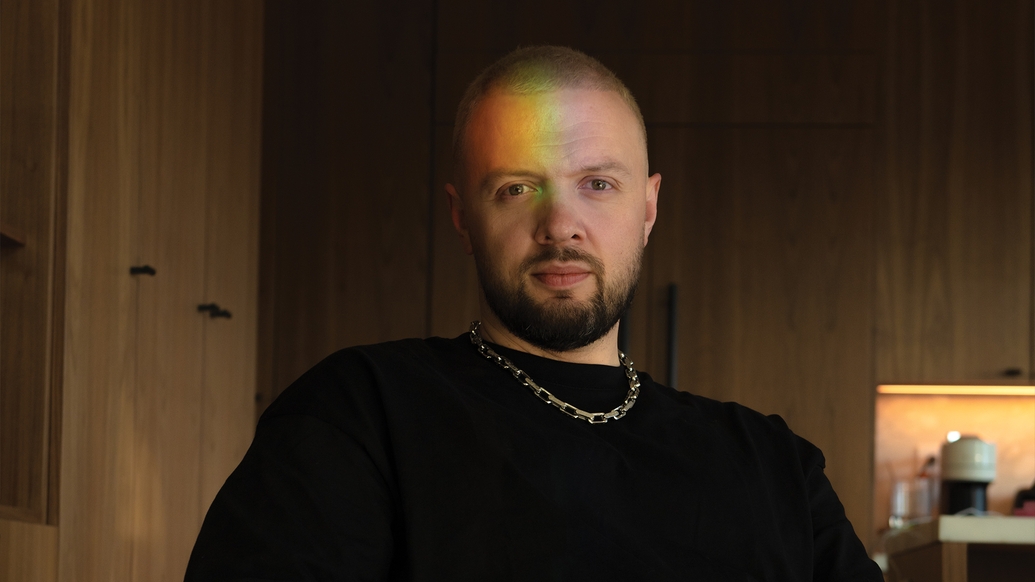
Chris Lake: slow burn
Lots of artists come and go, burning out before leaving a mark with their sound. Others hit a stride and never stop growing — like Chris Lake, who’s spent more than two decades cultivating a career in house music on his own terms. DJ Mag caught up with the UK-born, LA-based producer to learn about his history, and how he’s bestowing life’s biggest lessons on the new artists of Black Book Records
What’s the secret to igniting a lasting career in dance music? Some artists harp on the necessity of evolution — one must be malleable to remain relevant in a famously fickle field. Others lob credit to a supportive team. It’s hard to get far in this industry (or life, really) without good people in your corner. Then there are the rugged souls who insist success is the byproduct of hard lessons learned. An inability to recalculate wrong turns has assured the downfall of countless creative minds throughout history.
Chris Lake can tell you there’s no one right answer. During his more than 20 years behind the decks, the English producer and DJ has watched the popularity of genres rise and fall. He’s cheered on aspiring producers on their ascent toward global stardom. And when faced with challenges, he’s embraced the notion that he is the sole driver of his destiny. It’s a healthy attitude to have, though rare in an arena where worth is measured in vanity metrics like Spotify streams and chart rankings (though Lake’s no stranger to a Beatport Top 10).
Speaking to him, it seems clear that wellness routines have a positive effect on his professional longevity, too. “I woke up, did the workout, did the ice bath, did the sauna. Now I’m here. I’m awake!” he tells DJ Mag on a call from his Los Angeles residence. The house maestro’s domestic spa sesh looks something like this: Raise the body temperature for 10 minutes, follow it up with a freezing, 60-second plunge, and repeat that sequence for a total of three times. He’s certainly looking fresh — a sharp jolt to the parasympathetic nervous system will do that.
“That is part of the power of the exercises,” Lake says. “It’s about facing up to the pain and the shock that it has on your body — essentially, that’s what brings you the benefits. But it sucks,” he adds, presumably flashing back to the sub-zero segues. “FISHER does it all the time. He actually has ice put into the bathtub of his hotel room before he gets there. So, he gets off the plane and then jumps right in.”
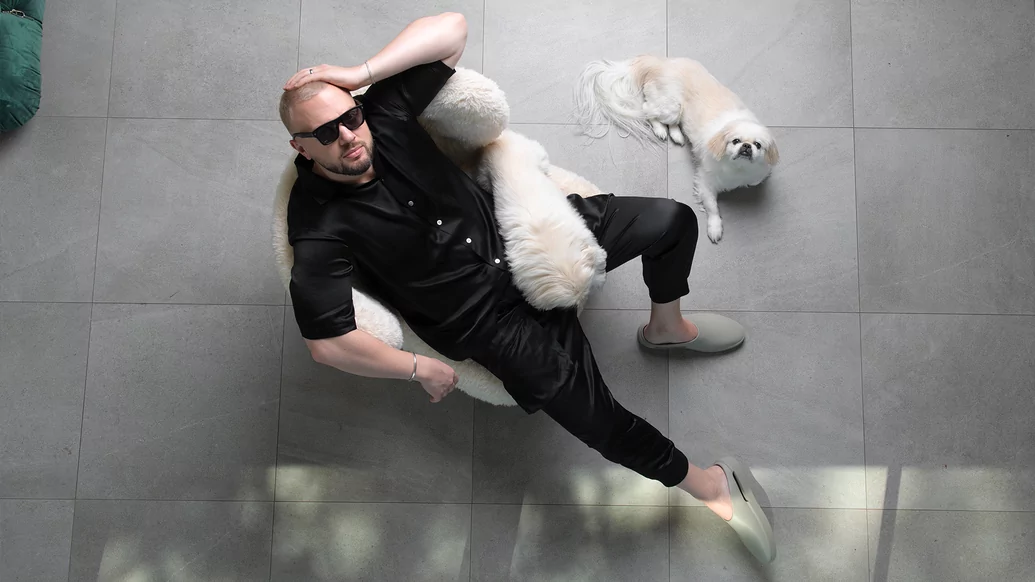
“I feel it’s a bit disingenuous to talk about your own characteristics, but I’d say I feel relatively comfortable with who I am, and I constantly try to not get caught up in comparison — it really is not self-serving.”
Lake’s just returned from Brazil, where he and his aforementioned Aussie cohort unleashed NAFF — the acronym for their coyly-dubbed Not Another Fucking Festival event. The duo launched it in 2019 as a home for their b2b performance. And in April of this year they headed to Coachella to share a similar experience with stateside audiences, but for a few days, our cover star is regrouping at home, clocking quality time with his Pekingese pups Alfie and Bow, along with his wife Gita, who he lauds as his constant inspiration and emotional rock.
“I’m starting to seek these more grounding, normal activities that I’ve not had in my life for quite a long time,” he shares in the quiet interlude. “This involves cooking at home — something that has not happened in this household for about 13 years. I’m 40 now and there are so many things I’ve done out of convenience to allow me to be in the studio non-stop.” Sure, a healthy meal and a good shvitz can do wonders for the mood, but they don’t drive decades of artistic excellence on their own.
“I feel it’s a bit disingenuous to talk about your own characteristics, but I’d say I feel relatively comfortable with who I am, and I constantly try to not get caught up in comparison — it really is not self-serving,” Lake continues. “I think it’s far more powerful to try and focus on doing everything I can to make me more me, rather than me more like other people.”
Newcomers can lack this sense of self-awareness, instead subscribing to a belief that they must erupt in a five-alarm blaze of glory, or risk being forgotten forever. But Lake didn’t arrive on the scene with a blowtorch and kerosene. Instead, he bided his time, gathering skills and confidence like a perfect bundle of kindling, only striking matches when the conditions were just right. The proof is in the payoff — these days, Lake’s positively on fire.
Every roaring outcome begins with something small. Lake found music through his family while growing up in Norwich, England. His paternal grandfather played organ at church — a classical model with a two-tiered keyboard and foot pedals. “And my grandfather on my mother’s side also had one of the more modern ones, where you might select bossa nova B, and you can play chords with your left hand and melody with your right,” Lake explains. The same man slung a saxophone in the ’50s and ’60s, once performing in Hamburg on a bill with The Beatles.
A 10-year-old Lake went from plunking the keys on his grandfather’s instrument to taking formal lessons, where he learned the basics. The family moved to Ireland and later Scotland, when Chris was about 14. There, he chose music as an area of study. “It was the least attended class in the whole school. There were only maybe 10 pupils for the entire year,” Lake remembers. “And one of them — my friend Andy — would make his own music on keyboards. I listened to him and thought, ‘This is the most amazing thing I’ve seen in my life! He’s creating his own sounds. He’s creating his own tunes. He can play other people's tunes!’ And I got so inspired, it just led me to then learn myself, what this was all about, what the possibilities were.”
Around the same time, Lake began flipping through the tech-scored pages of magazines like Future Music and Computer Music (“I might have even been starting to read DJ Mag then,” he adds), which opened his eyes to a whole new world of composition — and the hefty costs associated. He took up manual labour alongside his father in a fish-processing factory, determined to acquire the souped-up hardware he saw in print.
“Every holiday that I ever had as a teenager, I worked. You know, if you put in the work, you can make good money doing really shitty jobs,” Lake offers, demonstrating an early grit. Eventually he’d saved up enough for a starter collection of synthesisers, keyboards, drum machines, and mixers. “It was very expensive in the ’90s to get into making music,” he reiterates of a time when USB sticks were still a figment of sci-fi imagination.
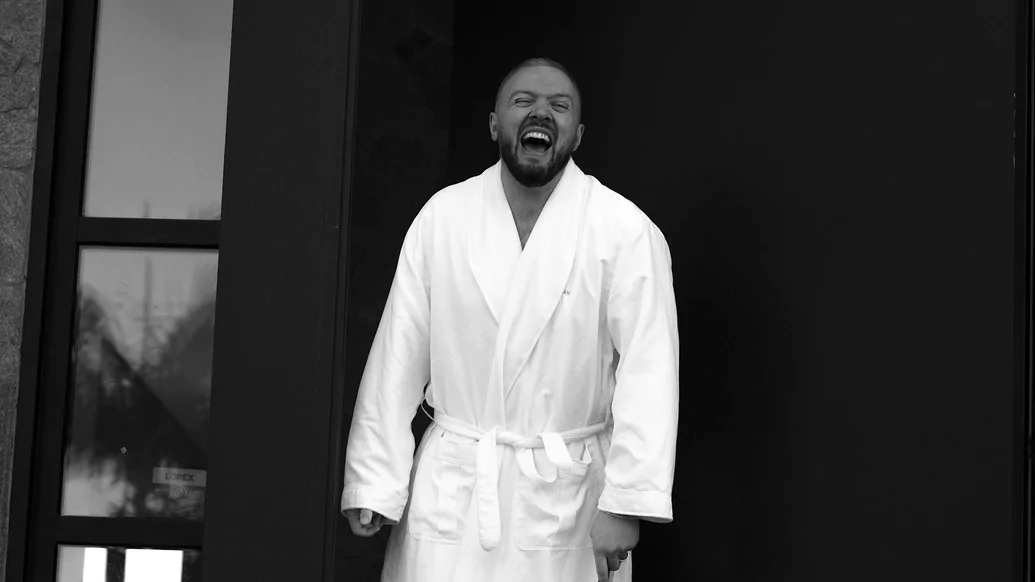
“I received an arts grant from the government for a thousand pounds to create a record label, and I came up with the name, got the logo, got contracts, signed records, and then I bought a Playstation, bought Grand Theft Auto 3, and played that for about two years.”
He had the gear — now he just needed ideas. Those proved elusive early on, so he crafted bootleg recreations of popular dance records instead (he points to ATB’s 1999 hit ‘9 PM (Till I Come)’ as one example that met his fledgling touch.) “But then the internet came along and I started posting on message boards,” Lake reveals with a smile.
“I started posting clips of my songs to these two message boards that I used predominantly — one was Hooj Choons, and the other the Global Underground Forum. Through that, I just learned so much about the industry.” He scored his first manager off the boards, with a run of notable originals coming next, though they weren’t the same kind of four-on-the-floor bangers Chris Lake is known for today.
“I was trying to make records that Sasha and Digweed would play,” he explains, waxing back to early influences. His 2002 progressive cut ‘Drink To Get Drunk’ (a vocal version of which features a pre-‘Titanium’, pre-‘Chandelier’ Sia) possesses a slow-building energy that was typical in turn-of-the-millennium grooves — or as Chris puts it, “It’s boring as fuck, it just goes on.” That opinion is subjective, as the nearly 11-minute track did light a spark. But Lake admits he lost grasp of its momentum — focus was fleeting between 2001 and 2005.
This is really quite embarrassing,” he says, teeing up an anecdote to exemplify the struggle. “I received an arts grant from the government for a thousand pounds to create a record label, and I came up with the name, got the logo, got contracts, signed records, and then I bought a Playstation, bought Grand Theft Auto 3, and played that for about two years,” he says in a tone reserved for shaming past-selves.
But one day, he received a package and an unexpected change of course. “I was getting my vinyl through the door, promos still, at that point,” Lake recalls. “The postman was delivering stuff to me, and I remember I just got talking to him. He said that there were jobs available at the post office.” Soon Lake was in a postman’s uniform himself, holding a position he genuinely enjoyed.
“It gave me discipline, it reduced my spare time, and I ended up being more productive — it’s unbelievable how much restriction can awaken you,” he says graciously. This burst of efficiency made him reconsider giving music an honest shot. After three years, Lake dropped his full-time job and decided to hone in on his craft. If things weren’t buzzing in 12 months’ time, he’d pursue another career — architecture, perhaps.
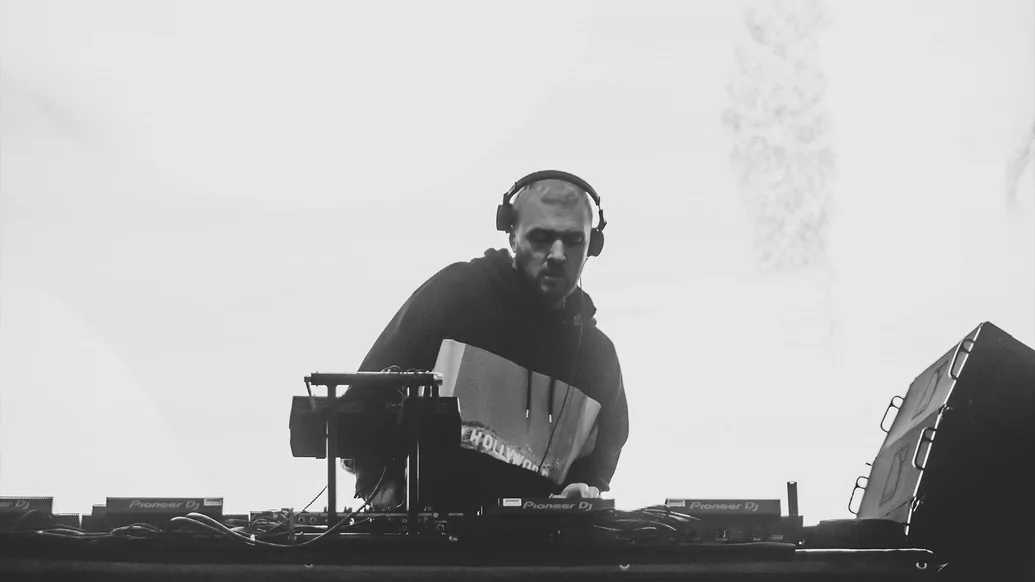

“I feel as if I’m a pigheaded prick now — I definitely know exactly what I want to do and I only allow influences that I intend to allow. There are people whose opinions I feel are valuable, and I’ll take them on, but there’s not many of them. And back then that wasn’t the case.”
Lake never found himself buried in drawing sets or building code. He did construct a fierce reputation in the underground, however. “In that year, I made the tracks that really formed the true start to my career,” Lake asserts. “The stand out ones were ‘One Too Many’, ‘Release’, and ‘Changes’ — ‘Changes’ was the real catalyst.” The 2006 key-kissed stunner saw two releases, first as an instrumental and later with a vocal — both scoring the BBC Essential New Tune nod from Pete Tong, who Lake looked up to immensely. Tong expressed a mutual respect.
“He said on the radio, ‘Chris Lake is the best thing to come from Scotland since Mylo...’ The problem was, I’m English,” the not-quite-Scottish DJ says with a chuckle. “But he said it with such confidence and authority, that’s what got published.” Lake decided to roll with it, using the complimentary comparison to the ‘Drop The Pressure’ creator as a means to propel his star profile (though it did cause a 15-year headache when Wikipedia repeatedly refused to correct the inaccuracy on its website, citing Pete Tong’s BBC Radio show as the original source.)
While the second version of ‘Changes’ helped fuel Lake’s presence in the international touring circuit, its popularity also brought moments of pause. “That was the time when instrumentals would get signed and you’d get extreme pressure from the record label to add the vocal,” he explains. “It wasn’t necessarily my ideal outcome, but I was young and green and kind of finding my way in the scene,” Lake admits of a first experience bending to the execs.
“I feel as if I’m a pigheaded prick now — I definitely know exactly what I want to do and I only allow influences that I intend to allow. There are people whose opinions I feel are valuable, and I’ll take them on, but there’s not many of them. And back then that wasn’t the case.”
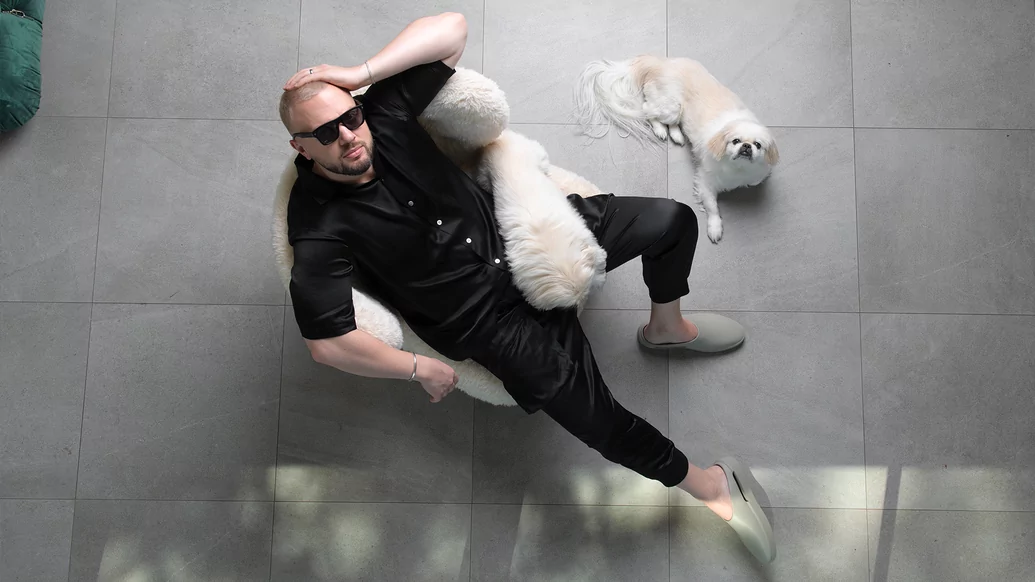
It took a few trials by fire to reach this conclusion, but triumphs, for the most part, offset the missteps. In the mid-aughts, Lake signed with IMD, a management company connected to clients like Carl Cox and Danny Howard, and his self-launched imprint Rising Music provided freedom to produce music on his terms, with his debut LP ‘Crazy’ arriving in 2009. It landed on Nervous Records, too, exposing Lake’s bold house productions to a wider swath of admirers.
Across the ocean, EDM was entering its own boom, and in 2012, Lake scored a Grammy nomination for his collaboration on Deadmau5’s album ‘4x4=12’ — the minimal ‘I Said’ (he had hooked Joel Zimmerman up with his manager years prior — the two go way back.) For a while, Lake danced on the fringes of the mainstream, and that was perfectly okay. But soon things changed, and Chris was no longer calling the shots.
“‘Boneless’ is a good example of where things sort of went a little bit left. Ironically, I’m really proud of the song. The instrumental — it bangs! — it’s just an epic track,” he says of the 2014 collaboration alongside Steve Aoki, Tujamo, and Kid Ink, that further amplified his name in North America (its official title is ‘Delirious (Boneless).’)
The song’s thumping, big-house rhythm scored that summer’s festival season, just as Aoki was baking up fresh plans. “It was all changing around the time when Dim Mak released Autoerotique’s ‘Turn Up The Volume’ — I don’t know if people even realise this, but that video was all slo-mo of people being caked.” Lake recalls that in an effort to market the release, Aoki brought that imagery to the stage, with ‘Boneless’ tied thematically to his new frosting-covered persona.
“All this time, my name is on it, and I’m watching this perception shift of Steve and I’m like, ‘Oh my God, we’ve got this massive record here and I’m being associated with a cake guy.’ And I’m not dissing Steve, fair play, he’s fucking brilliant, really, at what he does — but that’s probably one of the few examples of just a big record coming along... Absolutely ruined me. In an effort to build a new narrative from the ashes, Lake estimates he turned down 90% of the offers he received over the following five-year period. But what this reset chapter lacked in releases, it made up for with wisdom.
“My name is Chris Lake — it’s my real name. It’s not a project that I find easy to just abandon. It’s not a name that I can just drop and then it dies in the distance of the internet,” he says of the emotional era. “I reflect back on it and it’s absolutely, by a million miles, the thing I’m most proud of in my career. It was not the easiest thing to do. It was definitely not the easy choice — but the result for me is super rewarding. I still can’t believe I get to do the shit I’m doing right now!” he exclaims, throwing his arms open with joy.
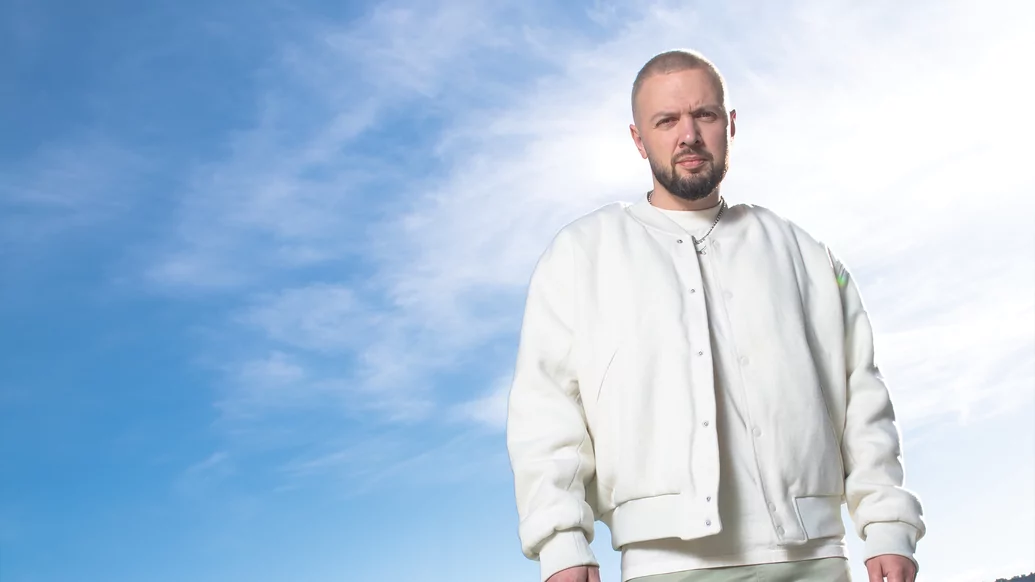
“The thing that makes you stand out is the only thing that is likely to get you noticed. If I hear, or if I identify something that I think is that thing, that spark, I’ll tell them.”
They say hindsight is 20/20, but overcoming obstacles breeds future savviness. “I do think I have an understanding of some of the biggest pitfalls there are to being an artist,” Lake says with conviction. Those tidbits are proving invaluable to the promising crew he’s cultivating as label boss at Black Book Records. He and his creative partner Ian Massoth unveiled the imprint in 2017 with the single ‘Operator (Ring Ring)’, a dancefloor thumper featuring Dances With White Girls. The buoyant single also appeared on the house-centered HOWSLA compilation that he curated with Skrillex (more recently the two worked together on the bass pioneer’s 2023 LPs ‘Quest for Fire’ and ‘Don’t Get Too Close’ — Lake shares credits on ‘Leave Me Like This’ and ‘Selecta’, specifically.)
“The HOWSLA compilation really made a mark, and then I feel as if that cosign from Skrillex — such a well-respected household name in America — was a really high-level endorsement of me and the journey that I’d been on to rewrite that new part of my history,” Lake says. When it became clear HOWSLA was winding down, and that HOWSLA initiatives would meet the same fate, that’s when Black Book opened.
The boutique label celebrated its 50th release milestone this March with ‘Black Book ID’s Chapter 5’, a compilation that included a highly-anticipated VIP remix of his twisted Green Velvet-graced creation ‘Deceiver’. That, and other originals like Lake’s 2018 melter ‘Turn Off The Lights’, featuring a stunning turn by Alexis Roberts, show off Lake where he sizzles — his impeccable vocal treatments, driving, discordant drum lines, and playful re-pitches make bodies move. His disco-tinged collaboration with Armand Van Helden, ‘The Answer’, and the tripped-out stomper ‘A Drug From God’, with NPC, are other notables from the top dog that shape the texture of the label.
In the six years since its inception, Black Book Records has solidified its reputation as a springboard for rising acts, too — Miane, Wade, and HoneyLuv are a few on the come-up as of late. And then there are contributions from close friends, like Chris Lorenzo’s modern rework of The Mamas & The Papas ‘California Dreamin’ (featuring High Jinx) that transcended every mixtape and club set since the world reopened. (Fans will also recognize Lorenzo as the other half of Lake’s analog-happy side project, Anti Up.)
One thing Black Book’s artists have in common is a distinctly recognisable sonic aesthetic. That’s something Lake perceives as priceless in a cutthroat market. “The thing that makes you stand out is exactly the thing you should embrace, because that is your unique selling point,” he says. “The thing that makes you stand out is the only thing that is likely to get you noticed. If I hear, or if I identify something that I think is that thing, that spark, I’ll tell them,” he adds, giving us a glimpse of his counselling.
That’s surely one reason why the imprint is half a hundred drops in, and is yet to release a sleeper (its beautifully illustrated, storybook-inspired cover art is another defining feature of the imprint.) Still, Lake views Black Book Records as more than just a platform for good music and stellar party lineups. “I want to help people get from point A to point B — you know, normally that is bedroom to stage,” he explains.
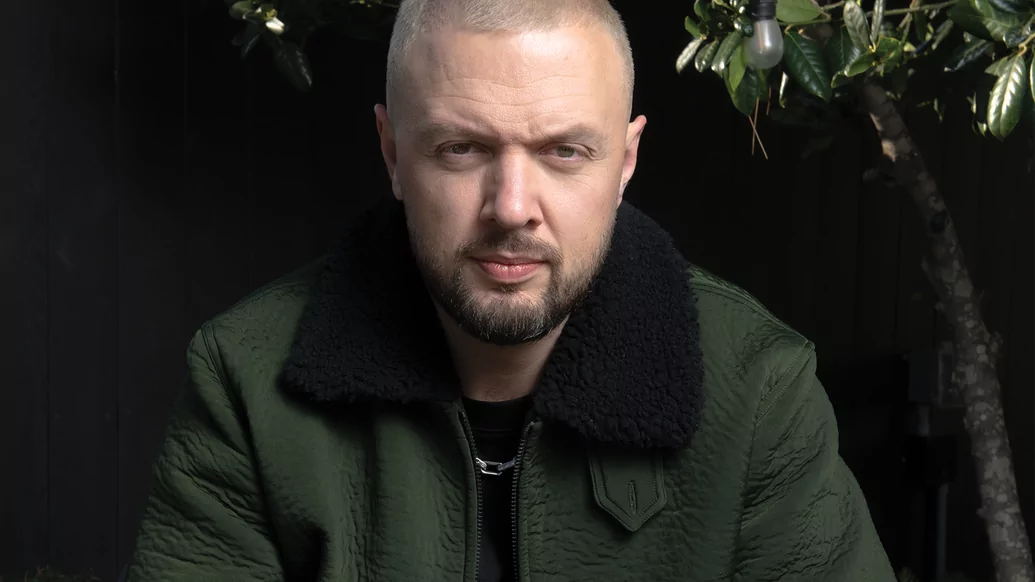

“Having a label and being able to release a record and get it to a wider audience is quite a significant component to that, but sometimes I feel that the more profound things can be the conversations that happen in-between, offering advice in navigating the seemingly small aspects of a career in music.” When he talks about being a pillar of support for fresh talent, doling out insights in areas like management, accounting, and moving to new cities, it’s evident that lived experience produces an empathetic mentor.
“The biggest thing that I’ve learned about is the mental aspect, the psychological approach to our own careers,” he attests, speaking with emphasis. “And one thing I’ll say is, categorically, there’s a lot of self torment among artists in the dance community, and it’s very easy for artists to over-complicate things in their own mind. I like to try and help them simplify the thought process.”
He accepts it’s not always easy to practice what he preaches. For one, there are more tweaks in store for ‘Beggin’ — his newest single with Aluna, which dropped on Black Book Records and Astralwerks on April 21. “I agonise over this stuff, I really do. The writing process is quite simple, but the finishing... My God,” he says, not afraid to admit he’s got a perfection problem when it comes to the detail of the low-end. He opens a folder on his computer to provide an update on where the dreamy cut stands at the time of our chat. “I periodically save clips in here — wow, yeah, I have about 100 renders,” he says, his eyes wide. “Eh, after this call, I’m changing it again.” We’d take time to describe its filter-rich intro and gated drums, but by the time this issue hits stands, the world will already be acquainted with a different shade.
Come to think of it, Lake’s got a few renderings himself — from the isolated kid pumping out progressive beats in his bedroom, to the artist who chose to rewrite his story on his own terms, to the tastemaker who’s actively propelling the next wave of house heroes — each version imprinted by lessons drawn.
It would seem then, the people who avoid burnout in this business are the ones who embrace every day, every project, every part of themselves as a work in progress. To build a lasting fire, you need the right material, patience, and steadfast determination; lose one of those components, and even the strongest blaze is reduced to cinders. But stack the logs just right, and the flames will reignite again and again. Chris Lake perfected the art of the slow burn, and nothing will extinguish his light.
